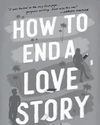The Literature of Comic Books
July - August 2023
|Writer’s Digest
Trace the rise of comic books from "disposable entertainment for children" to graphic novels telling the most important stories of our time.

Comic books today are a revered and often fanatically collected medium, but that wasn't always the case. In fact, almost from the beginning, the popular four-color magazines gave parents, teachers, and church leaders fits.
The most common lament: Comic books put dangerous ideas in children's heads and turned them away from more respectable forms of literature. By the mid-1950s, the outcry had become so vociferous that the industry created its own self-censoring body, the Comics Magazine Association of America, and with it a lengthy list of what comic books could and could not contain, known as the Comics Code Authority (CCA).
Writers were hobbled by the restrictions of the CCAit even banned the words horror and terror-so their stories became trite, repetitious, and boring. The situation changed dramatically in the early 1970s when the CCA finally loosened its chokehold, freeing comics to tackle the issues of the day, including drug addiction, racial disparity, political corruption, and poverty.
In the decades that followed, comic books experienced a remarkable transformation. Superheroes still dominated sales, but talented writers such as Alan Moore, Neil Gaiman, Brian K. Vaughan, Ed Brubaker, Garth Ennis, Brian Azzarello, Alison Bechdel, Colleen Doran, and many others eagerly took comic books to an exciting new level in terms of story and storytelling.
هذه القصة من طبعة July - August 2023 من Writer’s Digest.
اشترك في Magzter GOLD للوصول إلى آلاف القصص المتميزة المنسقة، وأكثر من 9000 مجلة وصحيفة.
هل أنت مشترك بالفعل؟ تسجيل الدخول
المزيد من القصص من Writer’s Digest
Writer’s Digest
100 Best Markets for Writers
A list of print and online publications looking for freelancers to contribute their knowledge on everything from pet care to finance and beyond.
65 mins
Yearbook 2026

Writer’s Digest
Memoir Plus
Add a bonus to your personal narrative for a marketing boost.
8 mins
Yearbook 2026
Writer’s Digest
Surefire Ways to Sell Your Children's Book
In my 28 years editing children's books, I've learned that publishing exists at the intersection of art and commerce.
5 mins
Yearbook 2026
Writer’s Digest
The ABCs of Freelance Success
Many freelance writers, especially those at the beginning of their careers, tend to place almost all of their professional focus on one specific component: craft.
5 mins
Yearbook 2026

Writer’s Digest
How to Write in Different Genres
Emiko Jean and Yulin Kuang share tips and strategies for how they successfully write in different genres and mediums.
8 mins
Yearbook 2026
Writer’s Digest
Small But Mighty
Why small presses might be the perfect home for your book.
8 mins
Yearbook 2026

Writer’s Digest
The Story Behind the Story
What's backstory, and what's it doing here anyway?
6 mins
Yearbook 2026

Writer’s Digest
2025 Year in Review
Publishing expert Jane Friedman recaps the biggest news in the industry.
8 mins
Yearbook 2026

Writer’s Digest
What Is Your Story Question?
When a story isn't working—when you know it's not quite coming together, when beta readers and critique partners confirm your fears but can't put a finger on why, or you're not getting offers from agents or publishers—savvy authors start trying to diagnose the issue by examining its component parts, like characterization, plot, and stakes.
6 mins
Yearbook 2026
Writer’s Digest
Writer's Digest 27th Annual 101 Best Websites for Writers
For the 27th year, Writer's Digest is shining a light on 101 websites with a goal of helping writers in a variety of ways.
26 mins
Yearbook 2026
Translate
Change font size

